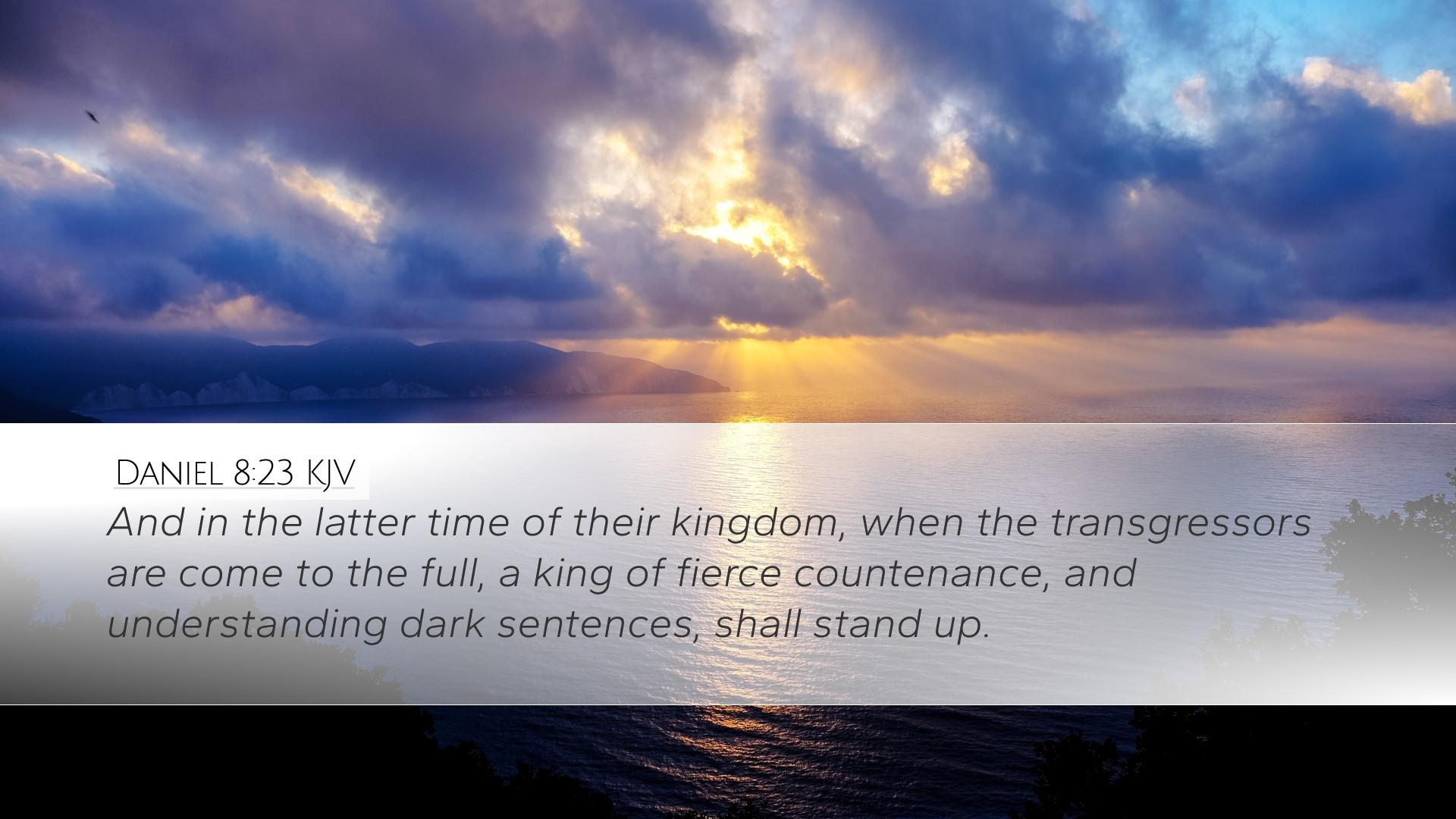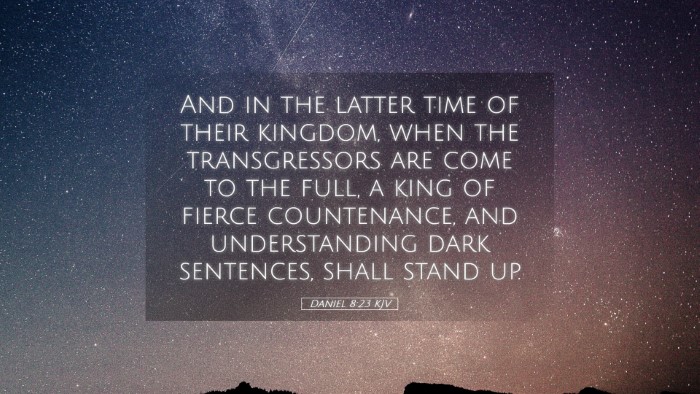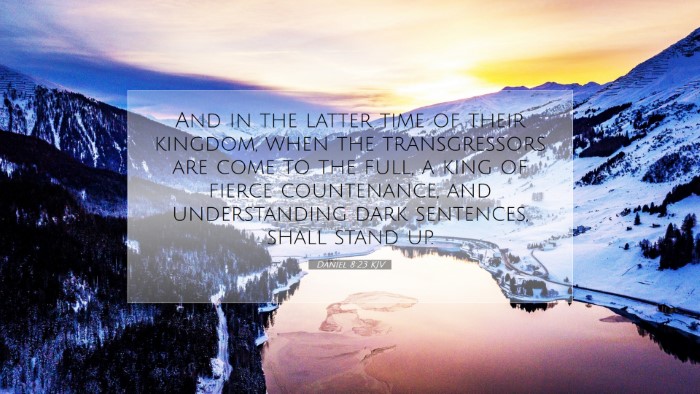Commentary on Daniel 8:23
Daniel 8:23 states: "And in the latter time of their kingdom, when the transgressors are come to the full, a king of fierce countenance, and understanding dark sentences, shall stand up." This verse is pivotal in the prophetic context of the Book of Daniel, indicating a time of significant upheaval and the rise of a formidable ruler.
Contextual Background
The Book of Daniel is a mix of prophecy and narrative set during the Babylonian exile. Daniel's visions in chapters 7-12 communicate God's sovereignty over human affairs, especially concerning the future of Israel. Chapter 8 particularly focuses on the Medo-Persian and Grecian empires, culminating in the rise of the Little Horn, which is often interpreted as a prefiguration of the antichrist.
Insights from Public Domain Commentaries
Matthew Henry's Commentary
Matthew Henry emphasizes the moral decline that precedes the rise of this ominous king. He notes that the kingdom referred to is neither strictly political nor spiritual; rather, it signifies a period marked by deep iniquity and rebellion against God's commandments. As the transgressors reach their peak, it signals a divine patience that is exhausted, provoking God’s judgment through a king who is described as having a "fierce countenance." This condition of full rebellion highlights the antithesis between the oppressor and the righteousness of God.
Albert Barnes' Notes on the Bible
Albert Barnes provides a detailed analysis of the phrase "king of fierce countenance." He suggests that this ruler will possess great intelligence and cunning, coupled with an inherent cruelty. Barnes posits that understanding "dark sentences" implies an ability to decipher and manipulate complex situations for his own gain. This understanding extends to the use of deceit and treachery, making him a formidable adversary against God’s people. Barnes correlates this figure with historical figures such as Antiochus Epiphanes but also sees a prophetic foreshadowing of the ultimate opposition to Christ.
Adam Clarke's Commentary
Adam Clarke focuses on the prophetic implications of the reigning power described in this verse. He interprets the "latter time" as a time when moral corruption is at its zenith, and this comes to fruition in the establishment of a ruler whose power is bolstered by wickedness. Clarke elaborates on the term "transgressors," indicating that they represent those who fully embrace iniquity. The king’s fierce countenance symbolizes not only his physical intimidation but also the spiritual oppression he brings upon the people, particularly towards the saints of the Most High.
Theological Reflections
This verse serves as a warning of the consequences of sin and rebellion against God. The "fullness" of transgression indicates a tipping point—a moment in time where God's judgment, long-suffering, and grace have reached their limits. The fierce king represents divine retribution manifested in human form. This concept ties into the larger theological theme of God allowing evil to flourish before ultimately intervening for the sake of His people. It underscores the reality of spiritual warfare, where the forces of darkness may seem to prevail temporarily but will be ultimately defeated.
Applications for Today
For pastors and theologians, Daniel 8:23 invites reflection on the nature of evil leadership—both in historical contexts and present-day implications. The characteristics of this fierce king serve as a cautionary tale regarding leadership that thrives on manipulation and oppression. Church leaders can draw from this passage by emphasizing the necessity of discernment in spiritual matters and encouraging congregants to recognize and resist influences that oppose God's truth.
- Encouragement to Vigilance: Pastors are called to warn their congregations about the dangers of complacency in spiritual matters.
- Call to Righteousness: The moral decay highlighted in this verse should prompt a call to pursue holiness and godliness within the community.
- Hope in God's Sovereignty: While evil may rise, believers must remember that God remains sovereign, ultimately orchestrating His plans for redemption.
Conclusion
Daniel 8:23 serves as a profound reminder of the challenges faced by the faithful amidst pervasive wickedness. The fierce king symbolizes the trials that God's people will endure but also serves as an assurance of divine justice and the ultimate victory of God's kingdom. The insights drawn from the commentaries of Henry, Barnes, and Clarke converge to form a comprehensive understanding of this verse, providing significant lessons for contemporary believers navigating a world filled with moral ambiguity.


